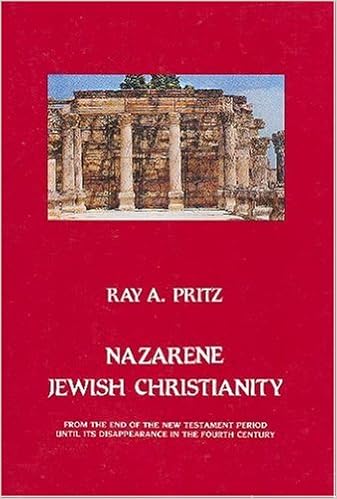Pritz studies out the early Christian sources and also the source of the name (Jesus was born in Nazareth; the name is used a couple times in scripture [once in Matthew and once in Acts]; the name appears to have been applied by outsiders rather than by the peoples themselves; it is possibly the fulfillment of prophecy but the fulfillment is obscure--possibly to a scripture in Isaiah, as the root of Nazarene and Nazarite, according to Pritz, appear different).
The study becomes most interesting in the chapters on Epiphanius and Jerome. The former wrote a long description of the Nazarenes in his work Panarian, not to be confused with a non-Christian Jewish sect of similar name about whom he also writes. Jerome claims to have come across Nazarenes in his journeys in Palestine, though it is uncertain whether he is referring to personal acquaintance or just coming across their works. He translated parts of the Gospel to the Hebrews, which he says they used, into Latin. Though they kept Jewish traditions, they were apparently not rejecters of Paul's writings and had much negative to say about the rabbinic Judaism.
After this, Pritz turns to later Christian writers, finding evidence that the Nazarenes likely existed into the third and maybe the fourth and fifth centuries. Most writers earlier accepted them as Christians, and thus that is one reason they are so little mentioned, but later writers considered them heretical, which is how they begin to show up in history.
Appendixes cover the supposed location of the Nazarenes and the question of whether the Pella tradition has any basis in reality. It was questioned by S. G. F. Brandon, who claimed that the Jerusalem Christians could not have escaped to Pella because Romans or Zealots would have killed them on the way, and once they got there, the inhabitants, who had been raided by Jews four years earlier, would have attacked them. Pritz notes that no one questioned the tradition before Brandon, that Josephus actually accounts for others escaping and may have had reasons to claim few did (to show up evil of zealots, power of Rome, etc.), and that no all places that were raided by the Jews reacted negatively to those Jews who lived there, who in some cases defended against the raids. Furthermore, Pella may have had Christian residents already who would have been more than willing to take in refugees.







1 comment:
Post a Comment